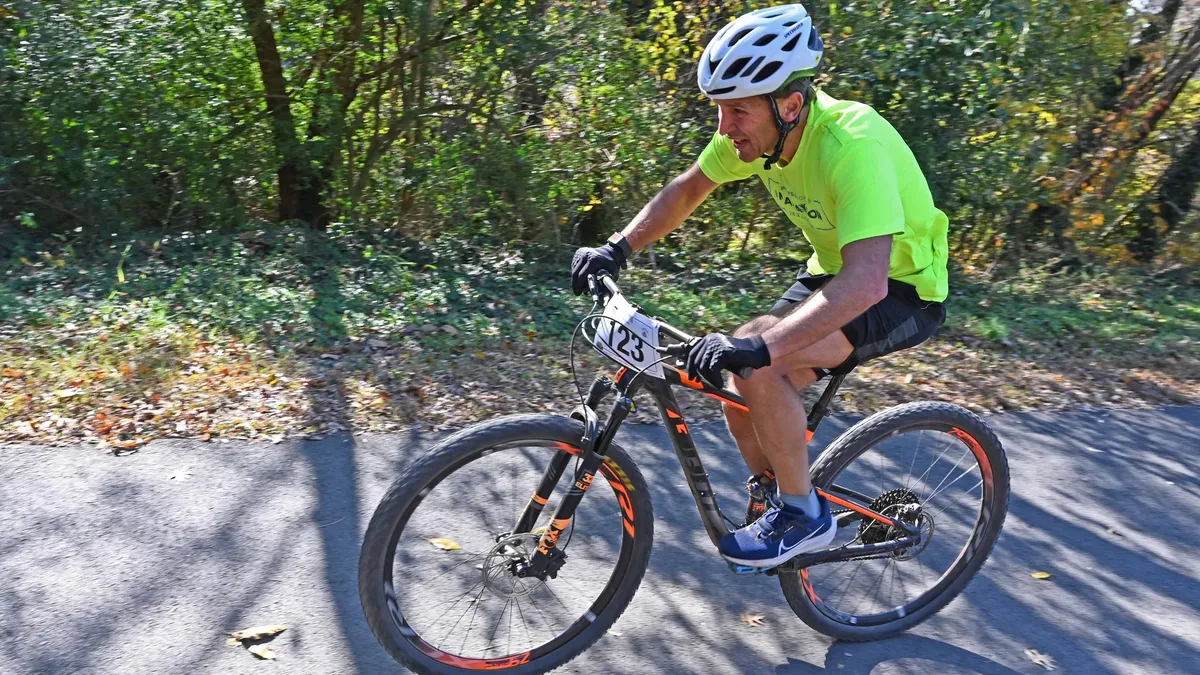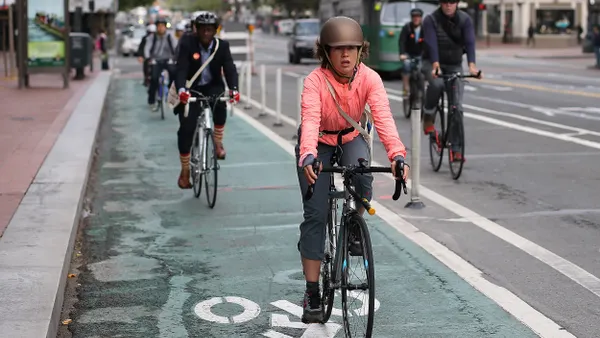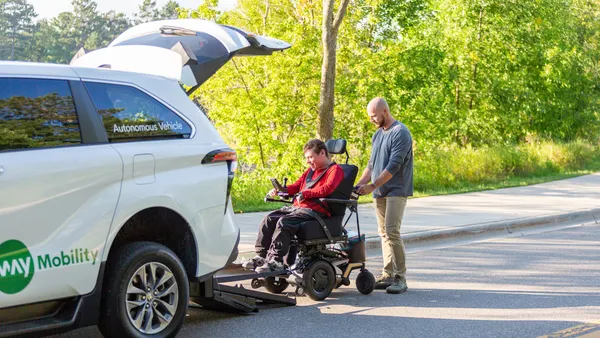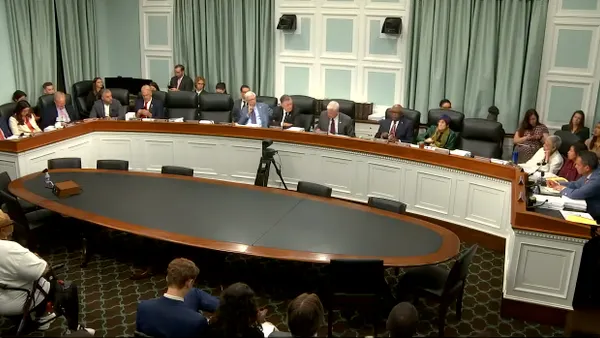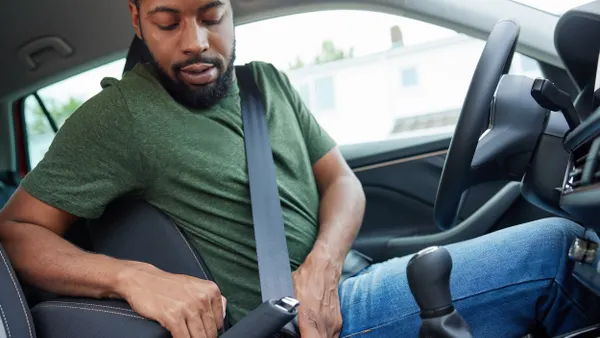Jon Lugbill won five world championship gold medals and three consecutive World Cup titles in canoe slalom racing and was on the U.S. Olympic team for whitewater canoeing in 1992. Now he is the executive director at Sports Backers, a Richmond, Virginia-based nonprofit that encourages active living.
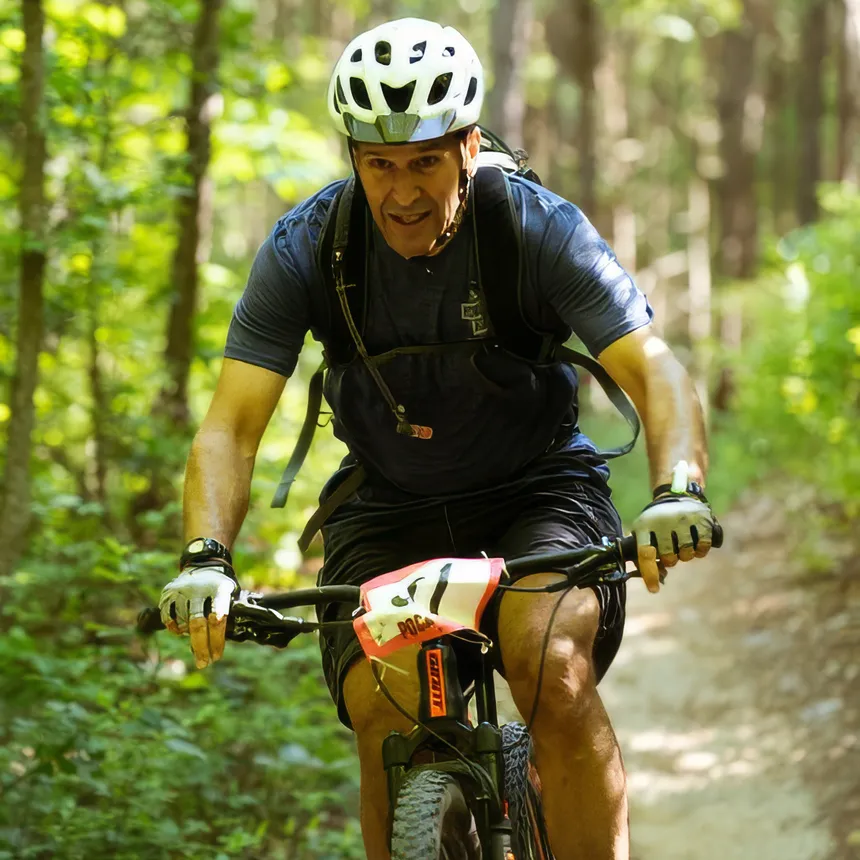
Since joining Sports Backers in 1993, he said that he has helped create local sporting events and programs for kids and developed a network of 8,000 volunteers. Perhaps the group’s biggest project is the Fall Line Trail, a 43-mile paved, multiuse trail under construction across four cities and three counties in Virginia.
Smart Cities Dive spoke with Lugbill about his passion for active living and the Fall Line Trail’s benefits to the Richmond region.
Editor’s note: This interview has been edited for clarity and length.
SMART CITIES DIVE: How did you get from the Olympics to leading a nonprofit in Richmond, Virginia?
JON LUGBILL: When I moved to Richmond in 1993, I was struck by the absence of trails. I run on trails, walk our dog, paddle on the river or mountain bike three or four times a week, so I'm a heavy trail user. Active living equity in our region is [an issue] where our region wanted to do a lot but needed some help, and needed to do it on a regional basis, not just in one jurisdiction. That opened the door for us [at Sports Backers].
Why is that issue important in the Richmond area?
If you live in a well-to-do area, there's a fitness something in every strip center all around the region. But if you go into low-income neighborhoods, they don't exist. So, we created a thing called fitness warriors, [which trains fitness instructors for communities with high rates of chronic disease]. We now are up to 57 free classes every week in churches, community centers [and] libraries in the low-income areas that basically are fitness deserts. Similarly, we have kids’ fitness programs before and after school throughout low-income areas, and we're in about 60 schools right now. It's an intentional effort to reach out to those areas that aren't serviced.
One of the big projects you are involved with is the Fall Line Trail. How did you get started on that?
We started working on it in 2017. We helped coordinate Hanover County residents [north of Richmond] to be actively engaged with getting the Fall Line Trail corridor identified as a potential trail corridor in Hanover County’s master plan.
Where does that stand now?
It's not like we had 20 miles of trail already on the ground and we're connecting them; this is a case of not having any paved trail along this corridor.
[It will be] 43 miles long; 22 miles of it should be under construction within a year from now. We have all but seven miles of it funded within the next six to seven years. There's been a real concerted effort to get funding for all the different sections.
Once all those projects get going, I think people are going to really start getting excited.
How will this benefit the community?
We engaged over 100 different stakeholder groups throughout the area to look at, where can you have enhanced landscaping? Where should there be connections with other trails, or sidewalks to neighborhoods, or different places of interest along the corridor? Where could there be playgrounds? Where can there be artwork? How do we build up this trail to be really special?
We're also connecting major employment centers. We'll be having bike lanes and sidewalks that connect along [two major roads in Richmond], and there'll be a paved trail leading to the Amtrak station. There's a new major development going in called Twin City, there's going to be a two-mile long paved trail that leads to that, including a new bridge over [Interstate] 95. So it's pretty cool.
What are you most proud of in your work in Richmond?
We've become a pretty powerful force advocating for bike and pedestrian infrastructure. I've seen the amount of money spent by our local governments go from just a couple million dollars a year on bike and pedestrian infrastructure to well over $30 million now. The pace that we're now funding infrastructure here is really phenomenal, so we're gonna see huge, huge change in the coming decade.



